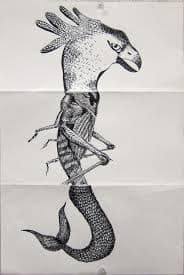 The term exquisite , from the Latin word exquisītus , refers to that or that which stands out for its attributes or qualities . This adjective , therefore, allows you to describe something or someone who stands out among their kind.
The term exquisite , from the Latin word exquisītus , refers to that or that which stands out for its attributes or qualities . This adjective , therefore, allows you to describe something or someone who stands out among their kind.
For example: “I remember that, in this restaurant, I once ate an exquisite dish made with cod and vegetables” , “The Colombian midfielder is an exquisite player, very skilled and with great technique” , “The beautiful model received an exquisite gift from a secret admirer."
In general, the notion of exquisite is usually used with respect to food . A food is exquisite when its flavor is very pleasant : that is why it satisfies the consumer's demands.
Exquisite can also be defined as an object that stands out for its quality , elegance or refinement . A gold jewel encrusted with small diamonds, for example, can be considered exquisite. The same rating goes to a silk dress with beautiful embroidery.
Whether we are talking about dishes of food, displays of skill by artists or athletes, or even the beauty of a piece of jewelry, the adjective exquisite is used to express opinions, so the message of which it is a part is subjective. Each person perceives their environment in a unique way, and tastes are in a particularly particular field, since they cannot be forced: even two children raised in the same family can have opposite tastes.
Of course, this adjective is more precise than "cute" or "pleasant", but it is still subjective , and that is why there may be the case of one person who uses it to describe their favorite painting, while another calls it horrible. , to the bewilderment of the first. No matter how many parameters someone uses to determine that a work is exquisite, there will always be a point of view that invalidates them, and there is not much we can or should do about that: it is about diversity.
The expression exquisite corpse , on the other hand, alludes to a technique used by the surrealists for the development of collective works. The creation of an exquisite corpse is carried out by creating it in sequence: according to the rules used, each individual only has access to the end of what was written or drawn by their predecessor or must continue blindly. This is how spontaneous and intuitive expressions develop.
 Tristan Tzara, André Breton y Robert Desnos son algunos de los surrealistas que solían entregarse a ejercicios de cadáver exquisito. Cabe destacar que incluso el nombre surgió mediante estos games, cuando grupalmente y de forma improvisada se escribió: “The exquisite corpse will drink the new wine”.
Tristan Tzara, André Breton y Robert Desnos son algunos de los surrealistas que solían entregarse a ejercicios de cadáver exquisito. Cabe destacar que incluso el nombre surgió mediante estos games, cuando grupalmente y de forma improvisada se escribió: “The exquisite corpse will drink the new wine”.
In the 1920s, these and other surrealists used to get together to enjoy a very particular game, which had originated in one called Consequences and consisted of each participant contributing a few words respecting the noun – adjective – verb structure . It was in this way that the aforementioned prayer arose, as André Breton related it at the time.
The experience of playing Exquisite Corpse is very peculiar. In some sessions, there are coincidences that are difficult to believe, as if the participants had agreed in advance on a particular objective. And it is precisely the spontaneity and unconscious nature of this game that attracted the surrealists, to create art taking advantage of that knowledge that is beyond what can be explained.
Furthermore, as Bretón mentioned, it generated a lot of emotion for them to be part of a literary production that was not possible to carry out with a single mind. And thus dozens of creations of various genres emerged, which each person could then use as a source of inspiration for their own.
